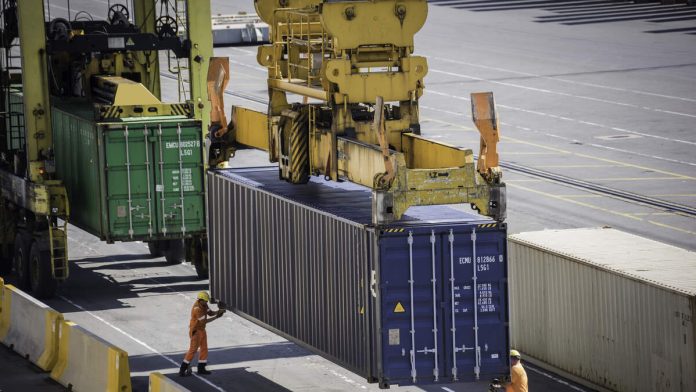A potential strike by about 45,000 dockworkers could shut down U.S. ports from Maine to Texas as early as Tuesday (October 1), threatening to raise prices on goods and potentially cause shortages at retailers nationwide as the holiday shopping season approaches. The International Longshoremen’s Association (ILA) is demanding significantly higher wages and a total ban on the automation of cranes, gates, and container-moving trucks used in the loading or unloading of freight at 36 U.S. ports. These ports handle roughly half of the nation’s cargo from ships.
The contract between the ILA and the United States Maritime Alliance, which represents the ports, expires on Tuesday. The two sides haven’t held negotiations since June. A strike by the ILA workers would be the first by the union since 1977. The ILA stated on Monday, “The Ocean Carriers represented by USMX want to enjoy rich billion-dollar profits that they are making in 2024 while they offer ILA Longshore Workers an unacceptable wage package that we reject.”
The potential shutdown could affect ports that specialize in handling goods for specific industries. These include Baltimore and Brunswick, Georgia, the top two busiest auto ports; Philadelphia, which prioritizes fruits and vegetables; and New Orleans, which handles coffee, mainly from South America and Southeast Asia, various chemicals from Mexico and North Europe, and wood products such as plywood from Asia and South America. Other major ports that could be affected include Boston, New York/New Jersey, Norfolk, Virginia, Wilmington, North Carolina, Charleston, South Carolina, Savannah, Georgia, Tampa, Florida, Mobile, Alabama, and Houston.
President Joe Biden could seek a court order for an 80-day cooling-off period under the 1947 Taft-Hartley Act if the strike is deemed a danger to U.S. economic health. However, when asked if he planned to intervene, Biden said, “No,” adding, “Because it’s collective bargaining, I don’t believe in Taft-Hartley.”
The strike could last weeks or even months. If resolved within a few weeks, consumers probably wouldn’t notice any major shortages of retail goods. However, a strike that persists for more than a month would likely cause a shortage of some consumer products, although most holiday retail goods have already arrived from overseas. Shoppers could see higher prices on a vast array of goods, from fruit and vegetables to cars.
“A strike would be very, very disruptive,” Jason Miller, a professor of supply-chain management at Michigan State University who closely tracks imports, told ABC News. “You can’t take all this freight and either send it to other ports or put it on airplanes,” Miller added. “There is no plan B.”
Many big retailers, anticipating a strike, started shipping their goods to U.S. distribution centers in June, and a majority of products are already in the U.S. However, retailers will have a hard time replenishing items and are incurring extra warehouse costs to store goods longer.

Recent Comments